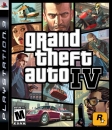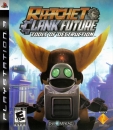TheMisterManGuy said:
I don't think the Wii U GamePad should be lumped in like that. As I said, for all its faults, it was a pretty standard controller out of the box, it's one of the only things the system got right. Developers didn't have to do anything with the second screen if they didn't want to, and could just throw a map or mirror image the tv screen if they wanted. The problems with the GamePad were more so that Nintendo never really proivided any practical use for it throughout most of the Wii U's life, so it became pretty useless. I think a better example would be something like the N64 and GameCube controllers or the Wii Remote + Nunchuck. Those were devices that were great for games that were designed around them, but weren't that great at being all-purpose standard controllers.
These were the actual downfall for third parties on Wii U. The system was hobbled with a slow, and ancient PowerPC CPU from the GameCube era that lacked support for most modern development tools and APIs. The 3DS had the same problem as well. This made Nintendo hardware, kind of a chore to support for a lot of devs that generation.
I mean the Switch basically has all the features of the Wii such as motion control with the Joy-Con and what not. The main benefit with the Switch is that out of the box, you have a classic controller setup, which is something the Wii didn't have. And as you mentioned, supporting modern APIs and development tools was one huge improvement Nintendo made with the Switch. Though the efforts to support indies actually started back in the 3DS/Wii U gen (even further with WiiWare and DSiWare, however limited they were). |
Bolded: This is true, to some extent. But the main problem was Nintendo's woeful online infrastructure, which is the bread-and-butter of Indies and small developers.
I agree that the Wii-mote is a better example overall, now that you mention it. But I did also find that most developers had trouble utilizing the Wii U remote in any meaningful way. I remember Zombi U having inventory screens on the controller, but it just made it an extra step for me. The PowerPC issue was one that I brought up often when discussing these matters during the Wii U's lifetime, but it was usually countered with "if developers want to make it work; they can". Which sort of ties into the horsepower portion of it all - we don't necessarily think like developers. The Wii U's choice of components was a big deal. I also remember the PS3s Cell Processor, where a unified developer front dubbed it a hassle to work with due to its structure.
Personally, I never owned a Wii or a Wii U, mostly due to the control schemes, pricing of peripherals and accessories, and the rather lackluster 3rd party support. With the Switch (bought mine about a year after launch), my only gripe is the hardware and performance issues. The machine itself, and its form, is good (I only play mine docked though). Especially with the Pro Controller, it's a real blast.




















